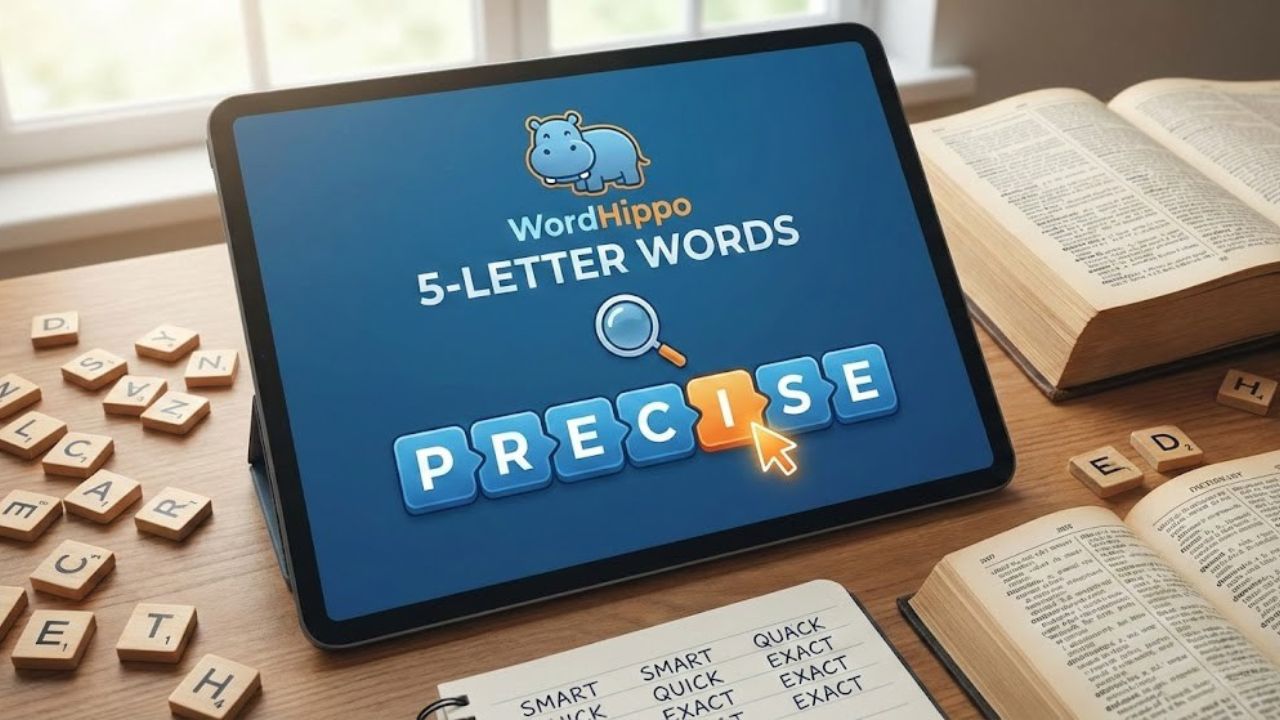Money is often said to be a universal language, but how people manage, invest, and think about money differs widely across cultures.
Each culture brings its own set of beliefs, practices, and traditions regarding wealth and financial responsibility.
These cultural practices have been honed over generations, offering valuable lessons that can help guide financial decisions, whether in personal finance, business, or investments.
From Japan’s disciplined savings culture to Africa’s deep-rooted philosophy of community support, each culture provides unique insights that can help shape more thoughtful, balanced financial habits.
Below, we dive deeper into 10 fascinating financial lessons from cultures around the world, providing timeless wisdom that transcends borders.
1. The Importance of Saving – Japan’s “Chochiku” Culture
Japan is a country where saving is more than a financial strategy—it’s a way of life.
The Japanese word “chochiku,” which means saving, is embedded in everyday conversations.
A post-World War II economy, where financial responsibility became crucial for survival and recovery, historically influenced Japan’s high saving rate.
Even as Japan became one of the most advanced economies in the world, this habit of saving has endured, shaping a culture that prioritizes financial security and long-term planning.
Lesson:
The Japanese approach to money management teaches us the immense value of saving. Many Japanese families follow the 50/30/20 rule (50% for needs, 30% for wants, and 20% for savings), with some even exceeding these benchmarks.
Savings aren’t just for emergencies; they are a fundamental part of ensuring stability, covering future education, homeownership, or retirement.
Why It Matters:
In a consumer-driven world, where immediate gratification often leads to debt, the Japanese emphasis on saving is a powerful reminder of the importance of delayed gratification.
Building a safety net through savings helps avoid financial stress and provides flexibility in times of need.
How to Apply It:
- Create a budget where saving at least 20% of your income is a non-negotiable priority.
- Set up automatic transfers to a savings or investment account to make the process easier and more consistent.
- Explore modest, frugal living options, focusing on needs over wants to accelerate savings.
Example:
A Japanese salaryman typically receives bonuses twice a year, during summer and winter.
Instead of splurging on luxury items, many families will put a significant portion of these bonuses into savings or investments, reflecting a long-term view of financial planning.
2. Investing in Education – Jewish Tradition of Lifelong Learning
In Jewish culture, education is not seen as a means to an end but as a lifelong journey.
The Talmud teaches that acquiring knowledge is one of the highest forms of personal and communal development.
This belief transcends religious studies and applies to education in all areas of life, including financial literacy.
The pursuit of knowledge is not just about obtaining degrees; it’s about continuous learning that helps individuals improve themselves and contribute to society.
Lesson:
Jewish culture teaches us that investing in education is one of the most valuable long-term financial strategies.
Knowledge enriches personal and professional life and opens doors to better-paying opportunities, smarter investment choices, and entrepreneurial ventures.
The focus is not just on traditional forms of education but also on cultivating financial intelligence.
Why It Matters:
Education is one of the few investments that always pays dividends, even in uncertain economic conditions.
Knowledge and skills are transferable, and they equip individuals with the tools to navigate challenges, innovate, and adapt to changing financial landscapes.
How to Apply It:
- Make continuous learning a part of your personal development plan. Enroll in courses, attend workshops, or invest in books that enhance your skills, particularly in areas like finance, technology, and entrepreneurship.
- Dedicate a portion of your income to self-education, such as attending conferences, obtaining certifications, or learning new software that could improve your earning potential.
- Teach your children the value of education early, helping them to understand that learning is a lifelong endeavor that extends beyond school.
Example:
The Rothschild family, a Jewish banking dynasty, famously prioritized education across generations.
They ensured that their children were well-versed not only in finance but also in languages, politics, and history—skills that later helped them manage one of the most successful financial empires in history.
3. Diversifying Income Streams – India’s “Jugaad” Mentality
“Jugaad” is a Hindi term that translates loosely to “frugal innovation” or “clever workarounds.”
In India, where economic conditions have historically been challenging for many, people have developed a culture of resilience and resourcefulness.
This includes the practice of not relying on a single source of income.
Many Indian households supplement their main income with small businesses, freelance work, or investments, ensuring that they remain financially secure even during economic downturns.
Lesson:
The Indian “jugaad” mentality teaches the importance of diversifying income streams to increase financial security and reduce risk.
Relying on just one job or source of income can be risky in uncertain economic climates.
By exploring multiple revenue avenues, individuals can create a safety net that ensures financial stability even when one income stream falters.
Why It Matters:
In today’s volatile job market, having multiple sources of income can provide security and reduce dependence on any single employer or sector.
Side hustles, passive income from investments, or even family businesses can help build wealth more rapidly than relying solely on a paycheck.
How to Apply It:
- Consider developing a side business that aligns with your skills or passions. This could range from consulting work, freelance writing, or online selling.
- Explore passive income streams such as stock investments, rental properties, or affiliate marketing.
- Look at existing assets—like a car, house, or skills—and consider how they can generate additional income (e.g., renting out a spare room or offering tutoring services).
Example:
Many Indian households run small side businesses, from tailoring to tutoring, in addition to their primary jobs.
This cultural practice ensures a steady flow of income and reduces the financial risks that come with job loss or economic downturns.
4. Community-Based Lending – Africa’s Rotating Savings and Credit Associations (ROSCAs)
Across Africa, the concept of communal savings and lending groups, known as ROSCAs (Rotating Savings and Credit Associations), is widespread.
These groups allow members to contribute a fixed amount of money regularly, and each member takes turns receiving the full sum.
The system is built on trust, community solidarity, and the principle of mutual support, enabling participants to save and access funds without traditional banking systems.
Lesson:
The lesson from ROSCAs is that community-based financial systems can provide alternatives to formal financial institutions.
This model emphasizes trust, social responsibility, and collective financial growth, showing how communal support can empower individuals to achieve financial goals, such as starting a business or paying for education.
Why It Matters:
ROSCAs provide financial inclusion for those who might not have access to traditional banking services or loans.
The focus on community also fosters a sense of accountability and support, ensuring that all members benefit from the system.
In a world where financial systems can feel impersonal and inaccessible, community-driven models offer a powerful alternative.
How to Apply It:
- Consider starting or joining a financial accountability group with friends, family, or colleagues. You could set up a savings group where each member contributes to a shared pool that rotates through the group.
- Explore peer-to-peer lending platforms that allow you to borrow or lend money within a trusted community, reducing the need for traditional loans or credit cards.
- If you run a small business, explore cooperative business models where resources, profits, and responsibilities are shared among members.
Example:
In Ghana, “susu” groups are a popular form of ROSCA. Market vendors, farmers, and small business owners contribute to the susu, and the lump sum allows individuals to make significant purchases or invest in their businesses, supporting local economic growth and entrepreneurship.
5. Embracing Minimalism – Scandinavian Frugality and “Lagom”
The term “lagom,” which refers to a minimalist lifestyle, is well-known in Scandinavian nations, particularly in Sweden, Denmark, and Norway.
Lagom means “just the right amount,” and it emphasizes the balance between excess and scarcity.
Scandinavian culture encourages individuals to live within their means, avoid unnecessary luxuries, and focus on sustainable, high-quality products that last.
Lesson:
The financial lesson here is that minimalism can lead to a more balanced, fulfilling life.
By embracing a “less is more” attitude, you can avoid the trap of consumerism and focus on meaningful purchases that enhance your life.
This practice not only saves money but also reduces environmental impact and fosters a sense of contentment.
Why It Matters:
Minimalism offers a refreshing alternative in a world where consumerism and “keeping up with the Joneses” are paramount.
It encourages individuals to focus on what truly matters—whether that’s relationships, experiences, or personal growth—rather than material possessions.
Minimalism can also have long-term financial benefits, as it encourages people to save rather than spend impulsively.
How to Apply It:
- Simplify your life by decluttering and getting rid of items you don’t use or need. Focus on quality over quantity when making purchases.
- Make intentional spending decisions based on your needs and values, rather than trends or social pressures.
- Invest in long-lasting, sustainable products that provide value over time, rather than cheap, disposable items.
Example:
The Swedish tradition of “fika,” a daily coffee break with colleagues or friends, highlights the importance of simple, meaningful experiences over consumer-driven habits.
Rather than spending money on expensive outings or shopping sprees, fika encourages people to take a break, connect, and enjoy life’s small pleasures.
6. Long-Term Planning – China’s Multi-Generational Approach to Wealth
Chinese culture places a significant emphasis on long-term financial planning, with a focus on building wealth that will benefit future generations.
This mindset stems from Confucian principles, which stress the importance of family, respect for elders, and ensuring the financial stability of future generations.
Chinese families often invest in real estate, businesses, and education as a way of securing long-term wealth.
Lesson:
The key financial lesson from Chinese culture is the value of planning for the future, not just for yourself, but for the generations that come after you.
Multi-generational financial planning ensures that wealth is preserved and passed down, creating a lasting legacy.
Why It Matters:
In today’s fast-paced world, many people focus on short-term financial goals, such as paying off debt or saving for a vacation.
However, long-term planning is essential for building sustainable wealth.
By thinking ahead, you can make smarter investment decisions, avoid unnecessary financial risks, and ensure that your family is financially secure for years to come.
How to Apply It:
- Start building wealth with future generations in mind by investing in assets that appreciate over time, such as real estate, stocks, or education funds.
- Create an estate plan that outlines how your assets will be distributed to your heirs. This might include setting up a trust, writing a will, or creating a financial legacy plan.
- Focus on long-term investments and savings strategies, such as retirement accounts, rather than short-term gains.
Example:
Chinese families often invest heavily in real estate, viewing property as a long-term asset that can be passed down to future generations.
It’s common for parents to purchase homes for their children or grandchildren as part of their financial planning strategy, ensuring that the family’s wealth grows and is preserved over time.
7. The Value of Hard Work – American Dream Mentality
The American Dream, the idea that hard work and determination can lead to financial success, has shaped the U.S. economy for decades.
This belief has fostered a culture of entrepreneurship, self-reliance, and upward mobility, where people are encouraged to pursue their goals with persistence and resilience.
Lesson:
The financial lesson from American culture is that hard work, perseverance, and ambition are critical to financial success.
Whether through entrepreneurship, career advancement, or side hustles, Americans are encouraged to take control of their financial futures and work toward their dreams, even if they face setbacks along the way.
Why It Matters:
Hard work and ambition are powerful tools for achieving financial independence and personal fulfillment.
While luck and timing also play a role in financial success, those who consistently work toward their goals are more likely to succeed in the long run.
The American Dream encourages individuals to take risks, be innovative, and never give up on their financial aspirations.
How to Apply It:
- Cultivate a strong work ethic and set ambitious goals for your career or business. Don’t be afraid to take risks and seize opportunities, even if they come with challenges.
- Focus on building your skills, knowledge, and network to improve your earning potential and open new doors for financial growth.
- Embrace entrepreneurship or side businesses as a way to increase your income and take control of your financial destiny.
Example:
Many successful entrepreneurs, such as Elon Musk and Oprah Winfrey, embody the American Dream.
Despite facing numerous obstacles, both individuals worked tirelessly to achieve their financial goals, demonstrating that persistence, innovation, and hard work can lead to extraordinary success.
8. Mindful Spending – Buddhist Philosophy of Financial Detachment
Buddhist philosophy emphasizes the idea of detachment from material possessions and wealth.
In many Buddhist cultures, the pursuit of wealth is seen as secondary to the pursuit of enlightenment and inner peace.
This philosophy teaches that true happiness comes from within, and that material possessions are temporary and should not dictate one’s happiness.
Lesson:
The financial lesson from Buddhist philosophy is the importance of being mindful about your spending and avoiding the trap of consumerism.
Instead of focusing on accumulating wealth and material possessions, Buddhist teachings encourage individuals to live simply, focus on their spiritual well-being, and avoid becoming overly attached to money.
Why It Matters:
Mindful spending can lead to greater financial stability and peace of mind.
By focusing on your needs rather than your wants, you can reduce unnecessary spending, save more money, and avoid the stress that comes with financial overextension.
Mindfulness also encourages individuals to think about the impact of their spending on the environment, society, and their own well-being.
How to Apply It:
- Practice mindfulness when making financial decisions. Before making a purchase, ask yourself whether it’s truly necessary and whether it aligns with your values and long-term goals.
- Simplify your life by reducing your dependence on material possessions and focusing on experiences, relationships, and personal growth.
- Prioritize saving and investing in your future rather than spending money on short-term pleasures.
Example:
In Thailand, a predominantly Buddhist country, many people practice mindful spending by living simply and focusing on their spiritual well-being rather than material wealth.
This philosophy has helped individuals achieve financial stability and inner peace, even in a consumer-driven world.
9. Financial Independence and Risk Aversion – German Prudence and Stability
Germany is known for its disciplined and conservative approach to money management.
German culture places a strong emphasis on saving, living within one’s means, and avoiding unnecessary risks.
Financial independence is highly valued, and many Germans prioritize saving for the future over spending in the present.
Lesson:
The financial lesson from German culture is the importance of financial prudence and stability.
Germans tend to avoid high-interest debt, and they prioritize building financial security through savings, investments, and careful planning.
This approach helps individuals achieve long-term financial independence and avoid the pitfalls of risky investments or overspending.
Why It Matters:
In today’s fast-paced world, where credit cards and loans are easily accessible, it’s easy to fall into the trap of overspending and accumulating debt.
The German approach to money management encourages individuals to focus on long-term financial security and avoid unnecessary risks that could jeopardize their future.
How to Apply It:
- Avoid high-interest debt and focus on saving for large purchases rather than relying on credit cards or loans.
- Build an emergency fund to ensure financial security in case of unexpected expenses or economic downturns.
- Adopt a conservative investment strategy that prioritizes long-term growth over short-term gains, and avoid risky investments that could lead to financial loss.
Example:
Many Germans prefer to save up for large purchases, such as cars or vacations, rather than taking out loans or using credit cards.
This approach helps individuals avoid debt and build financial independence, ensuring that they have the resources to weather financial storms.
10. Giving Back – African Ubuntu Philosophy
Ubuntu is an African philosophy that emphasizes the interconnectedness of people and the importance of community.
The word “Ubuntu” roughly translates to “I am because we are,” and it reflects the belief that individuals are part of a larger community and have a responsibility to help others.
In many African cultures, there is a strong focus on generosity, sharing resources, and supporting the well-being of the community.
Lesson:
The financial lesson from Ubuntu is that wealth should be shared, and financial success should be used to uplift others.
In many African communities, successful individuals are expected to contribute to the well-being of their families, friends, and neighbors, creating a culture of mutual support and collective prosperity.
Why It Matters:
While individual financial success is important, true wealth comes from the impact you have on others.
By giving back to your community and supporting those in need, you can create a ripple effect of positive change and contribute to the overall well-being of society.
Giving back also fosters a sense of gratitude, purpose, and fulfillment that transcends material wealth.
How to Apply It:
- Incorporate charitable giving or community support into your financial plan. This could involve donating a portion of your income to causes you care about, volunteering your time, or supporting local businesses.
- Create opportunities for others by mentoring, offering financial advice, or investing in small businesses that can benefit from your support.
- Remember that financial success is not just about accumulating wealth for yourself but also about using your resources to positively impact your community.
Example:
In many African cultures, it’s common for successful individuals to contribute to community projects, such as building schools, providing clean water, or supporting local entrepreneurs.
This culture of giving back ensures that the entire community benefits from financial success, creating a sense of collective prosperity.
Final Thoughts
Financial wisdom comes in many forms, and each culture offers unique insights into how we can approach money in a more balanced, thoughtful way.
Whether it’s the importance of saving from Japan, the value of hard work in the U.S., or the emphasis on community support in Africa, these lessons can help us build a more holistic approach to our financial lives.
By integrating these global financial principles into our own practices, we can create a more stable, prosperous, and fulfilling financial future.
Remember that wealth isn’t just about money—it’s about knowledge, community, and the long-term impact you have on the world around you.








































